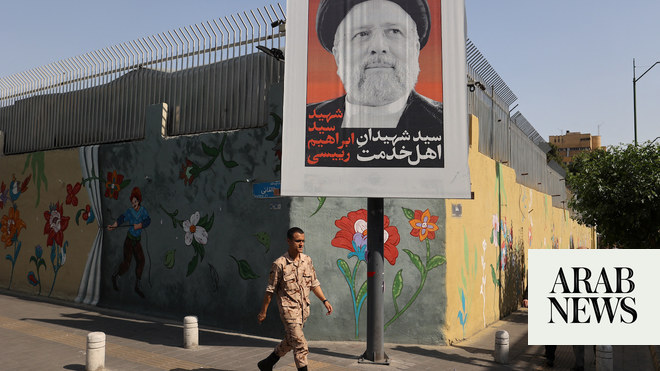PARIS: Iran’s former president Ebrahim Raisi, who died in a helicopter crash, is not worthy of condolences due to the rights abuses he is accused of overseeing, the son of the late Iranian shah said Monday.
US-based Reza Pahlavi, whose father Mohammad Reza Pahlavi was ousted in the 1979 Islamic revolution and died in exile in 1980, warned the death of Raisi would not affect the policies of the Islamic republic at home or abroad.
“Today, Iranians are not in mourning. Ebrahim Raisi was a brutal mass-murderer unbefitting of condolences,” Pahlavi said in a post on his official Instagram.
“Sympathy with him is an insult to his victims and the Iranian nation whose only regret is that he did not live long enough to see the fall of the Islamic republic and face trial for his crimes,” the former crown prince added.
Rights groups including Amnesty International have long accused Raisi of being a member of a four-man “death committee” involved in approving the executions of thousands of political prisoners, mostly suspected members of the outlawed opposition group People’s Mujahedin of Iran (MEK), in 1988.
As a key figure in the judiciary ever since and then president from 2021, Raisi has also been accused of responsibility over deadly crackdowns on protesters and other violations.
But Pahlavi warned the death of Raisi, as well as that of his foreign minister Hossein-Amir Abdollahian in the same crash, will “not alter the course” of the Islamic republic, where supreme leader Ayatollah Ali Khamenei has final say.
“This regime will continue its repression at home and aggression abroad,” Pahlavi said.
Pahlavi was a key member of a broad coalition of Iranian exiled opposition groups that joined together in the wake of nationwide protests that erupted in September 2022.
The coalition broke up amid tensions, but he remains an influential figure for some in the diaspora.
Pahlavi’s father the late shah, who was groomed by the West to be a Cold War ally, grew increasingly autocratic during his decades-long rule, using his feared Savak security service to crush political opposition and leading to criticism from Washington of his human rights abuses.


